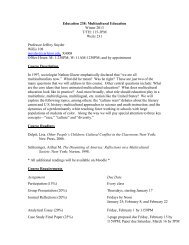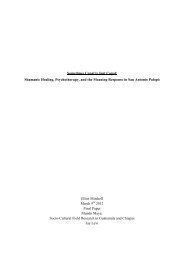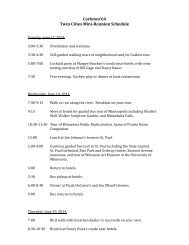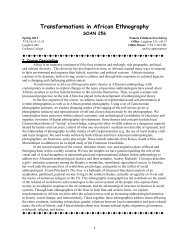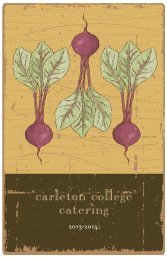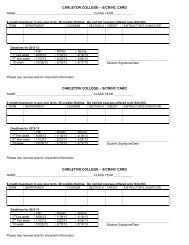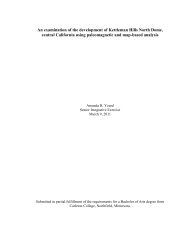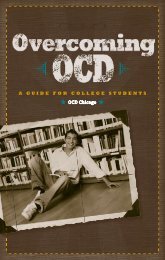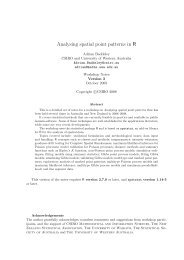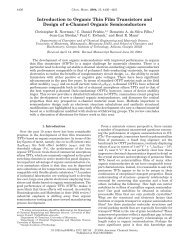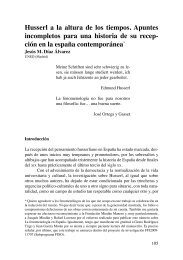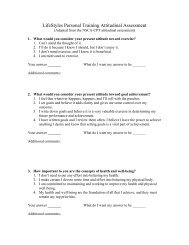babababababababababababababab the druid ... - Carleton College
babababababababababababababab the druid ... - Carleton College
babababababababababababababab the druid ... - Carleton College
You also want an ePaper? Increase the reach of your titles
YUMPU automatically turns print PDFs into web optimized ePapers that Google loves.
The Pronunciation of Irish<br />
Gaelic Terms<br />
This is not going to be a lengthy explanation of Gaelic spelling or<br />
pronunciation. What I hope to do is to give <strong>the</strong> reader a good enough<br />
idea of <strong>the</strong> basic sounds of <strong>the</strong> language to enable <strong>the</strong>m to pronounce<br />
those words found in <strong>the</strong> DC(E).<br />
Every consonant in Gaelic has two sounds, “broad” and “slender.”<br />
A slender consonant is pronounced more tensely than a broad<br />
consonant, and often a “y-glide” can be heard between <strong>the</strong> consonant<br />
and <strong>the</strong> following vowel. For those of you who know Russian,<br />
<strong>the</strong>re is a similarity to hard and soft (“palatalized”) consonants. <strong>the</strong><br />
slender consonant is palatalized, though usually not as noticeably as<br />
in Russian. A broad consonant is one which is preceded or followed<br />
by a slender vowel, to wit: “e” or “I.” Usually <strong>the</strong> consonant is both<br />
preceded AND followed by <strong>the</strong> appropriate vowels.—IB IB<br />
consonant<br />
b<br />
c<br />
d<br />
f<br />
g<br />
h<br />
l<br />
m<br />
n<br />
p<br />
s<br />
t<br />
bh<br />
ch<br />
dh<br />
fh<br />
gh<br />
mh<br />
ph<br />
sh<br />
th<br />
r<br />
phonetic<br />
translation<br />
b<br />
k<br />
d<br />
f<br />
g<br />
h<br />
l<br />
m<br />
n<br />
p<br />
s<br />
t<br />
v<br />
ch<br />
gh<br />
(silent)<br />
gh<br />
v<br />
f<br />
h<br />
h<br />
r<br />
broad sound<br />
as in boot<br />
“ “ cool<br />
“ “ do<br />
“ “ foot<br />
“ “ good<br />
“ “ hood<br />
“ “ loot<br />
“ “ moon<br />
“ “ noon<br />
“ “ poor<br />
“ “ soon<br />
“ “ tool<br />
“ “ voice<br />
“ “ scots loch<br />
voiced ch<br />
silentt<br />
as dh<br />
“ “ bh<br />
“ “ f<br />
“ “ h<br />
“ “ h<br />
“ “ trilled<br />
slender sound<br />
as in beauty<br />
“ “ cure<br />
“ “ dew<br />
“ “ few<br />
“ “ jewels<br />
“ “ hew<br />
“ “ lurid<br />
“ “ music<br />
“ “ innure<br />
“ “ pure<br />
“ “ sure<br />
“ “ tune<br />
“ “ view<br />
“ “ German ich<br />
‘y’ as in year<br />
silentt<br />
2) Vowels are a whole ’no<strong>the</strong>r kettle of fish. These will be <strong>the</strong> symbols<br />
used and <strong>the</strong> sounds <strong>the</strong>y represent; (remember <strong>the</strong> words are<br />
spoken by a cultured English voice):<br />
symbol<br />
a<br />
·<br />
e<br />
È<br />
I<br />
Ì<br />
o<br />
Û<br />
u<br />
˙<br />
sound<br />
At<br />
fA<strong>the</strong>r<br />
bEt<br />
fAte<br />
sIt<br />
shEEt<br />
OUght<br />
sOOn<br />
bUs<br />
dUne<br />
3) The accent in an Irish word is stronger than in English and usually<br />
falls on <strong>the</strong> first syllable. In <strong>the</strong> transliterations that appear in<br />
The Berkeley Calendar under <strong>the</strong> Druid Months and elsewhere, if<br />
<strong>the</strong> accent falls on a syllable o<strong>the</strong>r than <strong>the</strong> first, that syllable will be<br />
underlined. The accent in Irish is so strong that vowels in unaccented<br />
syllables become murmured.<br />
4) Syllables are separated by hyphens. <strong>the</strong>se pronunciations are of<br />
301<br />
course only approximate, but <strong>the</strong>y are very good approximations.<br />
They are those of <strong>the</strong> Munster dialect, which is grammatically <strong>the</strong><br />
most conservative dialect in modern Irish The spellings used will be<br />
<strong>the</strong> modern spellings, except where <strong>the</strong> Chronicles have <strong>the</strong> old form.<br />
In that case, <strong>the</strong> new spellings will be also presented next to <strong>the</strong> old.<br />
I personally prefer <strong>the</strong> older spellings, but <strong>the</strong> newer ones are more<br />
understandable to those unused to Irish spelling. Broad consonants<br />
will be <strong>the</strong> CAPITALIZED ones, slender consonants in lower case.<br />
5) For those interested in more information and a good beginning<br />
grammar and vocabulary, see Teach Yourself Irish by Myles Dillon<br />
and Donncha O Croinin, English Universities Press, London 1961.<br />
Ano<strong>the</strong>r good source is Learning Irish by Micheal O Siadhail from<br />
Yale University Press, 1988.<br />
Modern Modern Comments Comments by by <strong>the</strong> <strong>the</strong> Editor, Editor, Scharding<br />
Scharding<br />
“Unless you are one of <strong>the</strong> rare ones, like myself, you probably<br />
won’t have a clue on how to pronounce most of <strong>the</strong> Irish Gaelic<br />
terms bandied about in <strong>the</strong> Druid Compendium. It is not necessary<br />
to know hardly a single word of Irish to be a Reformed Druid, at<br />
least in <strong>the</strong> RNDA sense. Hoewever, a great number of people are<br />
attracted to Reformed Druidism because <strong>the</strong>y would like to be in a<br />
“Celtic Religion,” and something called “Druid” sounds Celtic. The<br />
usual result of this is that many of <strong>the</strong> people who are Reformed<br />
Druids have at least a passing interest in Irish culture and Irish language.<br />
“It is an interesting fact that celtic-oriented Druids in America<br />
seem to have a dominant preference for Irish language, gods & culture.<br />
This is probably due to <strong>the</strong> fact that <strong>the</strong> Irish culture retained<br />
intact more elements of a Paleo-pagan culture into <strong>the</strong> modern era<br />
than <strong>the</strong> Welsh, and certainly longer than <strong>the</strong> Gauls. It is also due to<br />
<strong>the</strong> fact that over 45 million Americans claim Irish descent versus<br />
less than <strong>the</strong> 15 million who claim Welsh descent. It is also a result<br />
of <strong>the</strong> Irish dominance in Folk music. Irish is only one of <strong>the</strong> Gaelic<br />
languages, <strong>the</strong>re is also Scottish Gaidhlig and Manx Gaalige; but<br />
Irish language tutorials are by far <strong>the</strong> most abundant in America.<br />
This is but <strong>the</strong> most simple of pronunication guides, most major<br />
libraries and book-store chains should be able to provide lexicons &<br />
language instruction books.”



